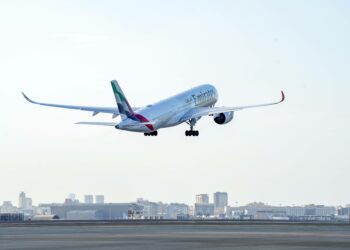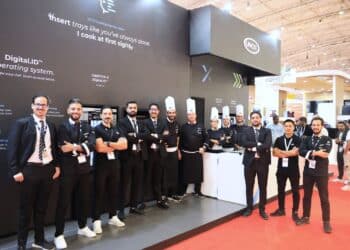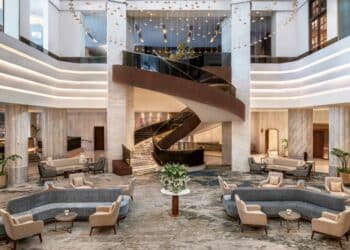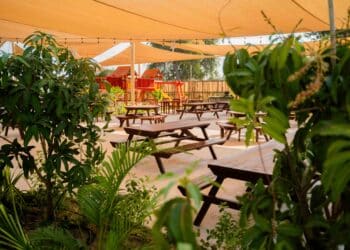
Emirates Flight Catering (EKFC) has commissioned a solar power system across its premises, expected to deliver an annual reduction of three million kilograms of greenhouse gas emissions.
EKFC’s latest initiative supports the Dubai Clean Energy Strategy 2050, which was launched by His Highness Sheikh Mohammed bin Rashid Al Maktoum, Ruler of Dubai, in 2015. Under the strategy, the Emirate aims to produce 75 percent of its energy requirements from clean sources by 2050.
“Sustainability is an important pillar of the Emirates Group strategy. We’re committed to responsible business and environmental stewardship, and we apply eco-efficient technologies across our operations to minimise our impact even as we continue to grow. Emirates Flight Catering’s latest initiatives open new opportunities to improve resource efficiency, underpinning Dubai’s strategy to become a global centre of clean energy and green economy,” says His Highness Sheikh Ahmed bin Saeed Al Maktoum, chairman and chief executive of Emirates Airline and Group.
EKFC’s solar rooftop power plant comprises 8,112 individual solar panels. It’s expected to generate 4,195 megawatt-hours of electricity annually, allowing the company to reduce traditional energy consumption by 15% across its laundry, food manufacturing and staff accommodation facilities.
EKFC will shortly start constructing the world’s largest vertical farming facility in a joint venture with US-based Crop One. The 130,000 square foot controlled environment facility will produce 2,700 kg of high quality, herbicide and pesticide-free leafy greens daily, using 99 percent less water than outdoor fields.
Its location will enable the quick delivery of fresh products within hours of harvest, maintaining food’s nutritional value and reducing carbon emissions associated with transportation. The first products are expected to be delivered to Emirates Flight Catering customers in 2020.



































































